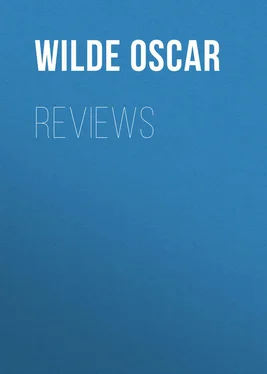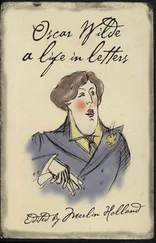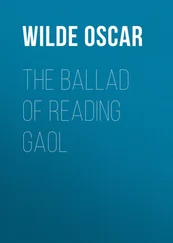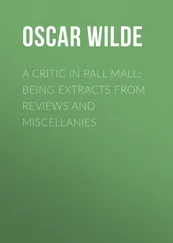Oscar Wilde - Reviews
Здесь есть возможность читать онлайн «Oscar Wilde - Reviews» — ознакомительный отрывок электронной книги совершенно бесплатно, а после прочтения отрывка купить полную версию. В некоторых случаях можно слушать аудио, скачать через торрент в формате fb2 и присутствует краткое содержание. Жанр: foreign_home, literature_19, cinema_theatre, foreign_prose, на английском языке. Описание произведения, (предисловие) а так же отзывы посетителей доступны на портале библиотеки ЛибКат.
- Название:Reviews
- Автор:
- Жанр:
- Год:неизвестен
- ISBN:нет данных
- Рейтинг книги:3 / 5. Голосов: 1
-
Избранное:Добавить в избранное
- Отзывы:
-
Ваша оценка:
- 60
- 1
- 2
- 3
- 4
- 5
Reviews: краткое содержание, описание и аннотация
Предлагаем к чтению аннотацию, описание, краткое содержание или предисловие (зависит от того, что написал сам автор книги «Reviews»). Если вы не нашли необходимую информацию о книге — напишите в комментариях, мы постараемся отыскать её.
Reviews — читать онлайн ознакомительный отрывок
Ниже представлен текст книги, разбитый по страницам. Система сохранения места последней прочитанной страницы, позволяет с удобством читать онлайн бесплатно книгу «Reviews», без необходимости каждый раз заново искать на чём Вы остановились. Поставьте закладку, и сможете в любой момент перейти на страницу, на которой закончили чтение.
Интервал:
Закладка:
So from 1850 her letters are more distinctly literary. She discusses modern realism with Flaubert, and play-writing with Dumas fils ; and protests with passionate vehemence against the doctrine of L’art pour l’art . ‘Art for the sake of itself is an idle sentence,’ she writes; ‘art for the sake of truth, for the sake of what is beautiful and good, that is the creed I seek.’ And in a delightful letter to M. Charles Poncy she repeats the same idea very charmingly. ‘People say that birds sing for the sake of singing, but I doubt it. They sing their loves and happiness, and in that they are in keeping with nature. But man must do something more, and poets only sing in order to move people and to make them think.’ She wanted M. Poncy to be the poet of the people and, if good advice were all that had been needed, he would certainly have been the Burns of the workshop. She drew out a delightful scheme for a volume to be called Songs of all Trades and saw the possibilities of making handicrafts poetic. Perhaps she valued good intentions in art a little too much, and she hardly understood that art for art’s sake is not meant to express the final cause of art but is merely a formula of creation; but, as she herself had scaled Parnassus, we must not quarrel at her bringing Proletarianism with her. For George Sand must be ranked among our poetic geniuses. She regarded the novel as still within the domain of poetry. Her heroes are not dead photographs; they are great possibilities. Modern novels are dissections; hers are dreams. ‘I make popular types,’ she writes, ‘such as I do no longer see, but such as they should and might be.’ For realism, in M. Zola’s acceptation of the word, she had no admiration. Art to her was a mirror that transfigured truths but did not represent realities. Hence she could not understand art without personality. ‘I am aware,’ she writes to Flaubert, ‘that you are opposed to the exposition of personal doctrine in literature. Are you right? Does not your opposition proceed rather from a want of conviction than from a principle of æsthetics? If we have any philosophy in our brain it must needs break forth in our writings. But you, as soon as you handle literature, you seem anxious, I know not why, to be another man, the one who must disappear, who annihilates himself and is no more. What a singular mania! What a deficient taste! The worth of our productions depends entirely on our own. Besides, if we withhold our own opinions respecting the personages we create, we naturally leave the reader in uncertainty as to the opinion he should himself form of them. That amounts to wishing not to be understood, and the result of this is that the reader gets weary of us and leaves us.’
She herself, however, may be said to have suffered from too dominant a personality, and this was the reason of the failure of most of her plays.
Of the drama in the sense of disinterested presentation she had no idea, and what is the strength and life-blood of her novels is the weakness of her dramatic works. But in the main she was right. Art without personality is impossible. And yet the aim of art is not to reveal personality, but to please. This she hardly recognised in her æsthetics, though she realised it in her work. On literary style she has some excellent remarks. She dislikes the extravagances of the romantic school and sees the beauty of simplicity. ‘Simplicity,’ she writes, ‘is the most difficult thing to secure in this world: it is the last limit of experience and the last effort of genius.’ She hated the slang and argot of Paris life, and loved the words used by the peasants in the provinces. ‘The provinces,’ she remarks, ‘preserve the tradition of the original tongue and create but few new words. I feel much respect for the language of the peasantry; in my estimation it is the more correct.’
She thought Flaubert too much preoccupied with the sense of form, and makes these excellent observations to him – perhaps her best piece of literary criticism. ‘You consider the form as the aim, whereas it is but the effect. Happy expressions are only the outcome of emotion and emotion itself proceeds from a conviction. We are only moved by that which we ardently believe in.’ Literary schools she distrusted. Individualism was to her the keystone of art as well as of life. ‘Do not belong to any school: do not imitate any model,’ is her advice. Yet she never encouraged eccentricity. ‘Be correct,’ she writes to Eugene Pelletan, ‘that is rarer than being eccentric, as the time goes. It is much more common to please by bad taste than to receive the cross of honour.’
On the whole, her literary advice is sound and healthy. She never shrieks and she never sneers. She is the incarnation of good sense. And the whole collection of her letters is a perfect treasure-house of suggestions both on art and on politics. The manner of the translation is often rather clumsy, but the matter is always so intensely interesting that we can afford to be charitable.
Letters of George Sand . Translated and edited by Raphael Ledos de Beaufort. (Ward and Downey.)
NEWS FROM PARNASSUS
( Pall Mall Gazette , April 12, 1886.)
That most delightful of all French critics, M. Edmond Scherer, has recently stated in an article on Wordsworth that the English read far more poetry than any other European nation. We sincerely hope this may be true, not merely for the sake of the public but for the sake of the poets also. It would be sad indeed if the many volumes of poems that are every year published in London found no readers but the authors themselves and the authors’ relations; and the real philanthropist should recognise it as part of his duties to buy every new book of verse that appears. Sometimes, we acknowledge, he will be disappointed, often he will be bored; still now and then he will be amply rewarded for his reckless benevolence.
Mr. George Francis Armstrong’s Stories of Wicklow , for instance, is most pleasant reading. Mr. Armstrong is already well known as the author of Ugone , King Saul and other dramas, and his latest volume shows that the power and passion of his early work has not deserted him. Most modern Irish poetry is purely political and deals with the wickedness of the landlords and the Tories; but Mr. Armstrong sings of the picturesqueness of Erin, not of its politics. He tells us very charmingly of the magic of its mists and the melody of its colour, and draws a most captivating picture of the peasants of the county Wicklow, whom he describes as
A kindly folk in vale and moor,
Unvexed with rancours, frank and free
In mood and manners – rich with poor
Attuned in happiest amity:
Where still the cottage door is wide,
The stranger welcomed at the hearth,
And pleased the humbler hearts confide
Still in the friend of gentler birth.
The most ambitious poem in the volume is De Verdun of Darragh . It is at once lyrical and dramatic, and though its manner reminds us of Browning and its method of Maud , still all through it there is a personal and individual note. Mr. Armstrong also carefully observes the rules of decorum, and, as he promises his readers in a preface, keeps quite clear of ‘the seas of sensual art.’ In fact, an elderly maiden lady could read this volume without a blush, a thrill, or even an emotion.
Dr. Goodchild does not possess Mr. Armstrong’s literary touch, but his Somnia Medici is distinguished by a remarkable quality of forcible and direct expression. The poem that opens his volume, Myrrha , or A Dialogue on Creeds , is quite as readable as a metrical dialogue on creeds could possibly be; and The Organ Builder is a most romantic story charmingly told. Dr. Goodchild seems to be an ardent disciple of Mr. Browning, and though he may not be able to reproduce the virtues of his master, at least he can echo his defects very cleverly. Such a verse as —
Читать дальшеИнтервал:
Закладка:
Похожие книги на «Reviews»
Представляем Вашему вниманию похожие книги на «Reviews» списком для выбора. Мы отобрали схожую по названию и смыслу литературу в надежде предоставить читателям больше вариантов отыскать новые, интересные, ещё непрочитанные произведения.
Обсуждение, отзывы о книге «Reviews» и просто собственные мнения читателей. Оставьте ваши комментарии, напишите, что Вы думаете о произведении, его смысле или главных героях. Укажите что конкретно понравилось, а что нет, и почему Вы так считаете.












